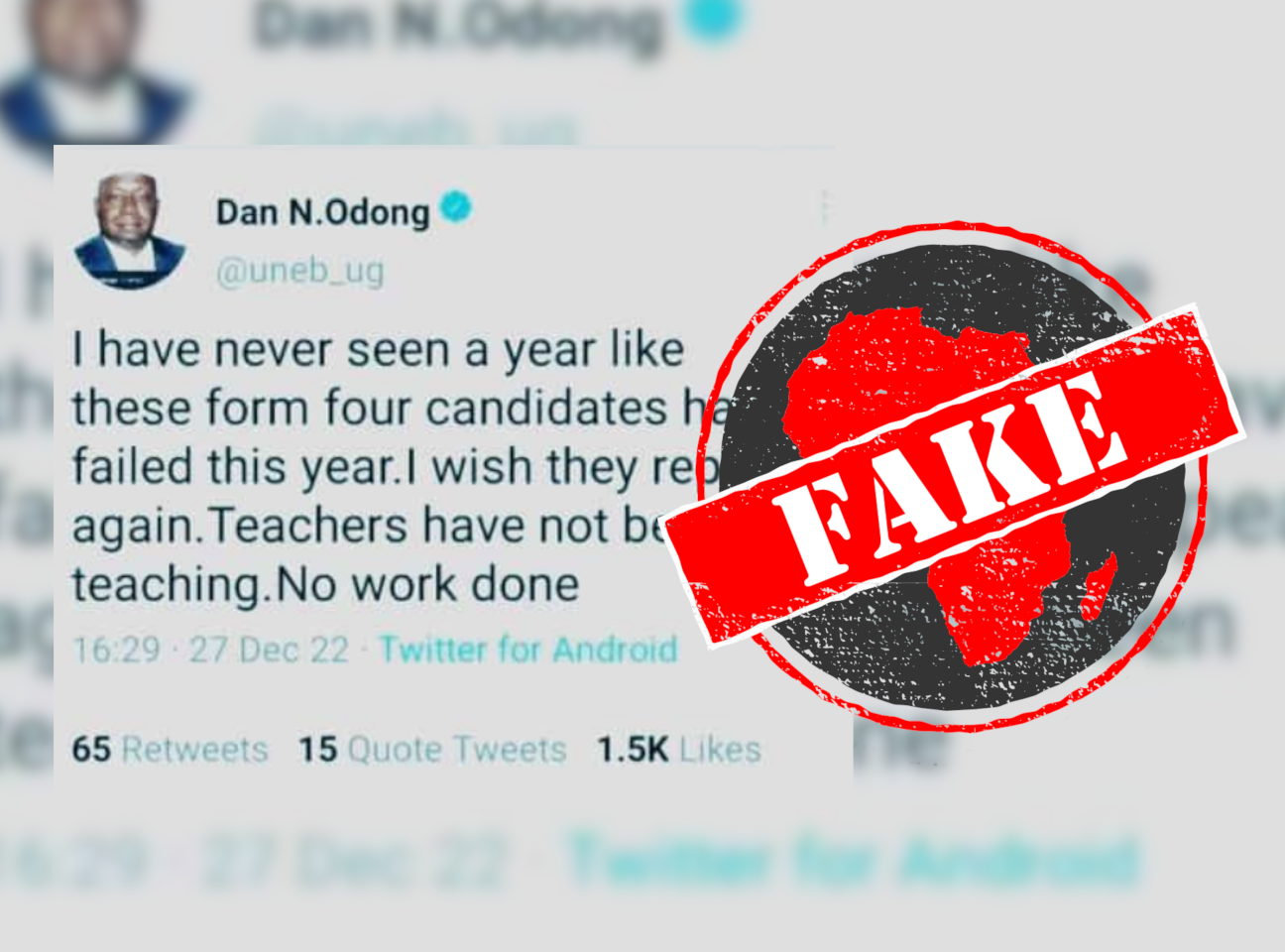IN SHORT: Form 4 students in Uganda are awaiting their 2022 exam results with bated breath. A quote attributed to the examination board that they had all failed is mercifully a fabrication.
“I have never seen a year like these form four candidates have failed this year. I wish they repeat again. Teachers have not been teaching. No work done.”
These words were allegedly said by Dan Odong, the executive secretary of the Uganda National Examinations Board (Uneb), according to what seems to be a screenshot of a tweet, shared on Facebook.
The 2022 Uganda Certificate of Education examinations began on 17 October and ended on 18 November. This is a compulsory exam written at the end of four years of lower secondary school in Uganda, often called O-level.
On 5 December Uneb announced that marking had started, and would hopefully be completed by January 2023.
This screenshot was also posted here, here, here, here and here. But is it legit?

Dan Odongo not on Twitter
The date on the screenshot appears to be 27 December 2022.
But on 28 December Uneb, through its official Twitter account, dismissed the tweet as “FAKE”.
The exams agency said: “Uganda National Examinations Board (UNEB) disassociates itself from fake news making rounds on social media to the effect that ‘Form four candidates failed this year, that teachers have not been teaching’, etc. Please disregard this unfounded and false news.”
“Marking for the #2022UCE exams is still under way & will be proceeded by a number of quality assurance processes before the final outcome can be determined. The official results of the 2022 Exams will be announced at appropriate dates that will be communicated in due course,” it added.
Uneb also said Odongo did not have a Twitter account and urged the public to be calm as it finalised results.
Republish our content for free
For publishers: what to do if your post is rated false
A fact-checker has rated your Facebook or Instagram post as “false”, “altered”, “partly false” or “missing context”. This could have serious consequences. What do you do?
Click on our guide for the steps you should follow.
Publishers guideAfrica Check teams up with Facebook
Africa Check is a partner in Meta's third-party fact-checking programme to help stop the spread of false information on social media.
The content we rate as “false” will be downgraded on Facebook and Instagram. This means fewer people will see it.
You can also help identify false information on Facebook. This guide explains how.


Add new comment